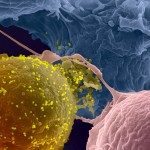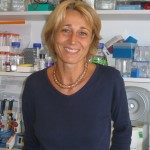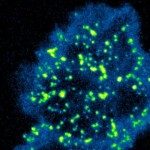Link to Pubmed [PMID] – 17353368
J Exp Med 2007 Mar; 204(3): 681-91
The SH2 domain-containing leukocyte protein of 76 kD (SLP-76) is a pivotal element of the signaling machinery controlling T cell receptor (TCR)-mediated activation. Here, we identify 14-3-3epsilon and zeta proteins as SLP-76 binding partners. This interaction was induced by TCR ligation and required phosphorylation of SLP-76 at serine 376. Ribonucleic acid interference and in vitro phosphorylation experiments showed that serine 376 is the target of the hematopoietic progenitor kinase 1 (HPK-1). Interestingly, either S376A mutation or HPK-1 knockdown resulted in increased TCR-induced tyrosine phosphorylation of SLP-76 and phospholipase C-gamma1. Moreover, an SLP-76-S376A mutant induced higher interleukin 2 gene transcription than wild-type SLP-76. These data reveal a novel negative feedback loop involving HPK-1-dependent serine phosphorylation of SLP-76 and 14-3-3 protein recruitment, which tunes T cell activation.



